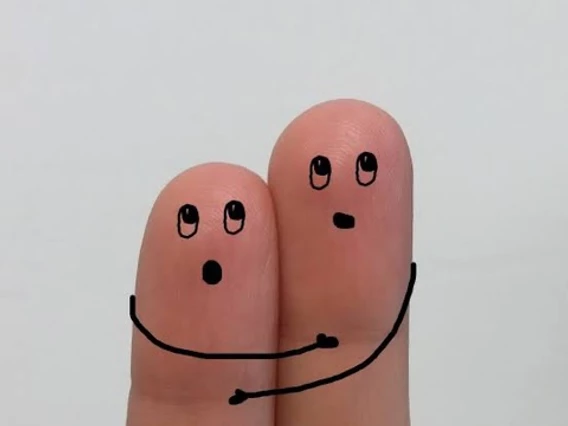Being vulnerable can feel risky. To be vulnerable is to be open to attack, it suggests defenselessness. Saying someone is vulnerable can imply shame or weakness – it can suggest someone is too sensitive or too easily hurt. These connotations are misleading: vulnerability is important and an earned skill. Without vulnerability, we would never connect with anyone! Here is a guide on the importance of vulnerability and how to embrace being vulnerable with your partner.
The Risks and Rewards of Vulnerability
Everybody experiences vulnerability: it is the emotional risk and uncertainty that we experience in our everyday lives. We are vulnerable when we say “I love you” to a partner for the first time, or when we suggest going to therapy.
We often wear masks to meet others’ expectations and fit specific roles, the psychoanalyst Carl Jung called these social masks the persona. When we take off these masks, we feel exposed- it might feel like we have been deceiving others about our true nature. That exposure is the experience of vulnerability. Vulnerability researcher Brené Brown says that when we are vulnerable, we stop showing who we think we should be and show who we really are. This kind of honesty requires great courage, and it is foundational to connecting with others.
Vulnerability helps us process our emotions and it improves our self-confidence. When you think to yourself “I deserve to be loved as I am,” you will feel loved by yourself and others. Even if vulnerability feels risky, it rewards you with feelings of confidence & trust.
Working to Be More Vulnerable
Our culture often tells us that we should not be vulnerable: we are told to “toughen up,” or to “stop being so sensitive.” This kind of thinking is harmful to our wellbeing and health. Emotional resilience and vulnerability are not opposed, they are strengthened by each other, and both take work to improve.
One way to start your journey towards vulnerability is to identify friends and family who show vulnerability. Who do you know that has been honest about their struggles? Perhaps you have a sibling that told you about their anxieties moving out. Or perhaps you have a friend who wrote openly on social media about their struggle with anxiety. When you connect with vulnerable people you will build trust, these feelings of safety will help you lower your guard and be more vulnerable in return.
You don’t have to bring up all of your fears or anxieties at once to be vulnerable. You can ease into vulnerability by bringing up simple concerns and slowly building to more intense topics. Practice self-care regularly to check in with your feelings, try meditating or journaling to get in touch with your emotions and recognize your needs.
If you have a serious conversation with your partner, prepare by thinking about how you really feel and what you really need. Vulnerability works both ways- invite your partner into the conversation. Instead of accusing or criticizing your partner, express your concerns as a need. Instead of saying, “you never respond when I ask you something, you don’t care about me!” try saying, “I feel like I’m having a hard time communicating with you, and it makes me feel lonely; I need to make sure we are listening to each other.” Accusing your partner discourages vulnerability, inviting discussion rewards vulnerability by building trust and respect.
Vulnerability Strengthens Our Relationships
When we resist vulnerability, we also resist intimacy. Rejecting vulnerability is the same as saying, “I cannot be myself; I have to hide part of who I am.” If we cannot believe that we deserve love, trust, or compassion, then we will never feel loved, trusted, or cared for. If we don’t believe we can be honest, then we won’t be able to expect honesty from anyone else.
Relationships are built on trust and communication. A healthy relationship requires a great deal of emotional – and often physical – intimacy. Sharing your life with others requires that you trust them and can connect with them; it also requires believing that you deserve trust, connection, and love. By practicing vulnerability, you will build self-confidence and a stronger connection with your partner.
Working towards vulnerability can be difficult, especially with a romantic partner. If you are struggling with vulnerability, therapy might be one option that can help you.











